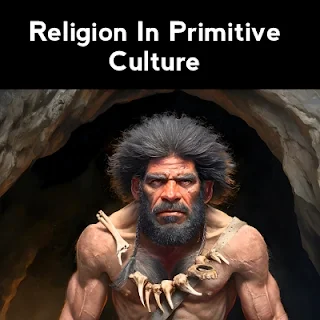Religion In Primitive Culture by Edward B. Tylor
In the book "Religion In Primitive Culture" by Edward B. Tylor, the author delves into the complex and intricate world of animism, a belief system that forms the basis of many primitive cultures. The book is divided into several chapters, each exploring different aspects of animism and its manifestations in various societies.
In Chapter XII, Tylor discusses the doctrine of the soul's existence after death, focusing on the main divisions of transmigration and future life. He explores the concept of transmigration of souls, where the soul is believed to be reborn in human and animal bodies, as well as transferred to plants and objects. Tylor also touches upon the resurrection of the body, a belief that is scarcely held in savage religions. The idea of a future life is examined as a general, if not universal, doctrine among low races, with a focus on continued existence rather than immortality. Tylor also discusses the second death of the soul and the belief that the ghost of the dead remains on earth, especially if the corpse is left unburied. The chapter concludes with a discussion on feasts of the dead and their significance in primitive cultures.
In Chapter XIII, Tylor continues his exploration of animism, focusing on the journey of the soul to the land of the dead and visits by the living to the regions of departed souls. He discusses how these legends are often connected with myths of sunset, with the land of the dead imagined to be in the west. Tylor also explores the localization of the future life, whether in distant earthly regions like the Earthly Paradise or subterranean Hades, or in celestial bodies like the sun, moon, and stars. The chapter also delves into the nature of the future life, including theories of continuance, transitional theories, and retribution theories. Tylor provides a historical overview of beliefs regarding the afterlife, from savage to civilized stages, and examines the practical effects of these beliefs on the sentiment and conduct of mankind.
In Chapter XIV, Tylor expands on animism, moving from the doctrine of souls to the wider doctrine of spirits, which he argues forms a complete philosophy of natural religion. He discusses the definition of spirits and their embodiment in human, animal, vegetable, and inert bodies. Tylor explores concepts like demoniacal possession and obsession, fetishism, and idolatry, as well as the survival of animistic phraseology in modern language. The chapter concludes with a discussion on the decline of the animistic theory of nature and its implications for modern religious thought.
Chapter XV continues the exploration of animism, focusing on spirits as personal causes of phenomena in the world. Tylor discusses pervading spirits as good and evil demons affecting humans, as well as spirits manifesting in dreams and visions. He explores the concept of guardian and familiar spirits, as well as nature spirits like those of volcanoes, whirlpools, rocks, and water. Tylor also delves into animal worship, totem worship, and species deities, examining their relation to archetypal ideas.
In Chapter XVI, Tylor delves into higher deities of polytheism, discussing how human characteristics are applied to deity and the principles of investigating and classifying deities according to their significance and function. He explores various deities like the heaven-god, rain-god, thunder-god, and sun-god, examining their roles in the natural and human world.
Chapter XVII focuses on the great deities of polytheism that rule the course of nature and the life of man. Tylor discusses childbirth-gods, agriculture-gods, war-gods, and the god of the dead, as well as the concept of dualism and the development of the idea of a highest or supreme deity. He provides a general survey of animism as a philosophy of religion, recapping the theory of its development through successive stages of culture.
"Religion In Primitive Culture" by Edward B. Tylor offers a comprehensive and detailed exploration of animism and its manifestations in primitive societies. The book provides valuable insights into the beliefs, practices, and philosophies of these cultures, shedding light on the origins and evolution of religious thought.
Download PDF book 55 MB



